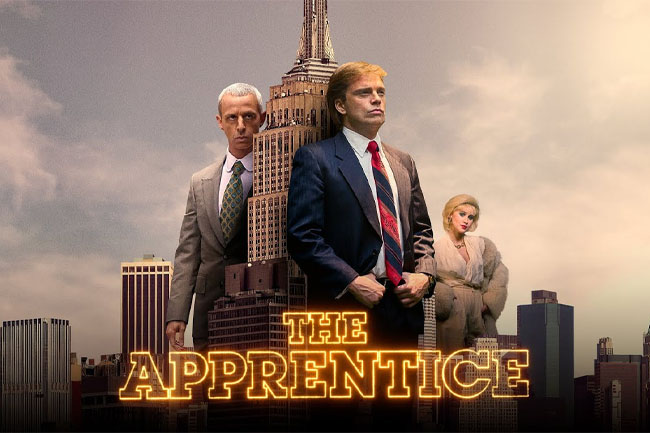One movie event in the '80s shocked us with its depiction of the effects of nuclear war. Decades later, the world still seems hesitant to listen. Digital editor Dan Jensen reflects on the chilling warning Threads had to offer.
THE 1980s was a decade made famous by MTV, Rubik’s Cubes, Walkmans, the threat of global thermonuclear war and Cabbage Patch Kids, among other icons.
Those who grew up in that era will recall several incidents in the early part of the decade which led to some close calls of an armed conflict escalating between those perennial rivals, Russia and the USA. Suddenly, nuclear war was on everyone’s mind around the world and Hollywood didn’t hesitate to cash in on the fear.
Films such as War Games played with nuclear war as a plot device embedded in a more entertaining story. On the flip side, The Day After and movies of that ilk brought to the screen the real horrors of what a war would look like and the after-effects of such a catastrophe.
But that was Hollywood. Across the pond, the Brits came up with a film in 1984 that shook the world and made us all pay attention. Far more terrifying than any horror film, Threads hit our television screens and woke us up to the real dread that would be the result of a nuclear war.
Sadly, 40 years later, Threads hasn’t lost any of its relevance.
A joint venture between the BBC and the Nine Network, Threads focuses on two families in Sheffield, England, who are faced with the struggle for survival after the nation is ravaged by Russia’s nuclear weapons. The narrative focuses on the social, economic, medical and environmental consequences of such a war, and was the first film to depict the effects of a nuclear winter.
The story follows a young couple, Ruth and Jimmy, who plan to wed after learning of a child on the way. We meet their families and follow their daily lives as news reports quietly play in the background.
A fictional crisis develops in the Middle East between the Soviet Union and the USA, and as the urgency grows, the characters begin to discuss the situation with more gravity.
Before long, hell on Earth breaks loose as Sheffield becomes caught in the conflict between the two superpowers, possessing significant military targets. The attack kills millions and reverts society to medieval times, with no power, water and barely any food.
Threads manages to skillfully depict the following decade after the attack within its 112-minute timeframe. Children born during this time suffer the effects of radiation and poor education. Ruth’s daughter, Jane, endures the most horrific environment in which to grow up, resulting in an ending to her story that is both heartbreaking and disturbing.
The director of Threads, Mick Jackson, has quite an eclectic filmography to his name including critically acclaimed films such as L.A. Story and The Bodyguard, but also a few less favourable movies such as Volcano and Clean Slate. But Threads holds its place among Jackson’s high points and decades later is still being discussed.
While the Cold War may have eased, the threat of nuclear war is a danger we’re still facing today.
Some may recall in June of 1985, Threads was broadcast on Australian screens as a special feature without ad breaks. To mark the film’s 40th anniversary, on 9 October 2024, the BBC broadcast it again in the UK which led to much online discussion about the still-present dangers of nuclear war.
In 2018, former Labour leader Neil Kinnock wrote in a letter to the filmmakers:
‘This story must be told time and time again... Don’t, by the way, be troubled by the possibility that some people might be inured to the real thing by seeing horrifying films. The dangers of complacency are much greater than any risks of knowledge.’
When asked how he felt about his words now, Kinnock said:
‘I’d stick by every word, I think. The dangers of complacency are lethal.’
Just this week, Russian President Vladimir Putin has been in the news under headlines such as ‘Putin issues warning to United States with new nuclear doctrine’. While the radioactive fear that enveloped the world in the early ‘80s has dissipated, complacency could well be our undoing.
Threads is essential viewing. It’s visceral and brilliant, unsettling and horrific, deserving of its perfect 100% score on aggregator site Rotten Tomatoes. While it’s a difficult movie to watch, the lessons to be learnt are significant, as are the questions it raises. Why are we still having this conversation? Why haven’t we learnt that there are no winners in a nuclear war?
Civilisations are likely more prepared for a catastrophe of the magnitude depicted in Threads, but then again, the weapons involved are also more devastating than they were 40 years ago.
Either way, Threads was crafted with the consultation of leading scientists, medical professionals, and defence and strategic experts for the most realistic depiction of what a nuclear war would look like and should not be ignored.
Threads is available to rent or buy from Amazon Prime Video.

You can follow digital editor Dan Jensen on Bluesky @danjensen.bsky.social or check out his podcast, Dan and Frankie Go To Hollywood. Follow Independent Australia on Bluesky @independentaus.bsky.social and on Facebook HERE.
 This work is licensed under a Creative Commons Attribution-NonCommercial-NoDerivs 3.0 Australia License
This work is licensed under a Creative Commons Attribution-NonCommercial-NoDerivs 3.0 Australia License
Support independent journalism Subscribe to IA.

-











